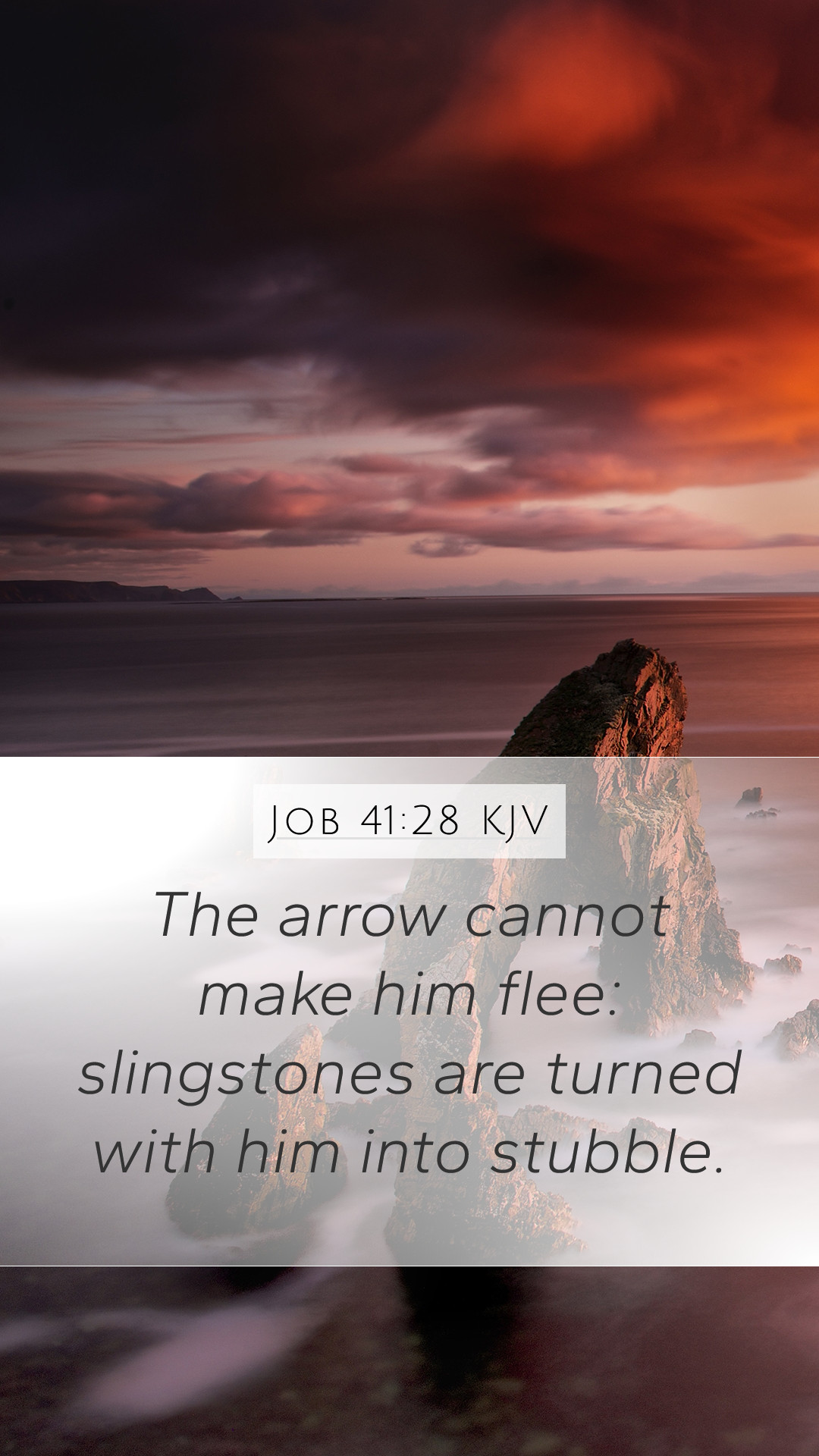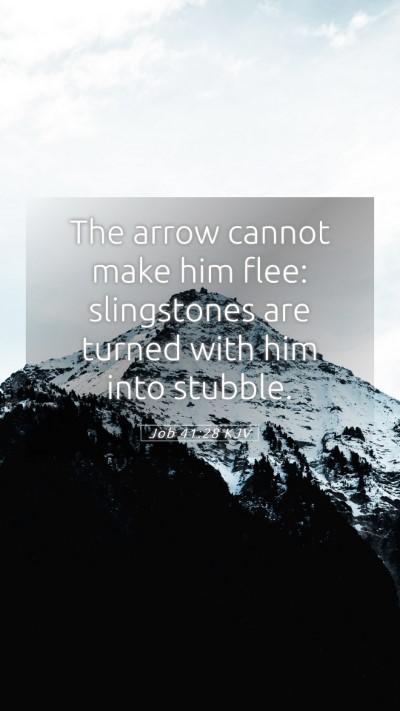Understanding Job 41:28: A Comprehensive Analysis
The verse Job 41:28 states:
"The arrow cannot make him flee: slingstones are turned with him into stubble."
This passage is part of God's discourse to Job, describing the formidable nature of the creature known as Leviathan, a metaphorical representation of chaos and uncontrollable forces in the world.
Bible Verse Commentary
Exploring the meaning of this verse requires delving into various public domain commentaries that provide insights into its implications.
-
Matthew Henry's Commentary:
Henry interprets this verse within the context of God's sovereignty. He stresses that human weapons—represented by arrows and slingstones—are ineffective against Leviathan. This serves as a reminder of God's creation's might and the folly of attempting to confront such powers with physical means.
-
Albert Barnes' Notes:
Barnes highlights that Leviathan symbolizes the immense power of God within creation. The reference to arrows and slingstones emphasizes human limitations when faced with divine creation. His commentary encourages readers to acknowledge the grandeur of God's work and recognize the impotence of man against such forces.
-
Adam Clarke's Commentary:
Clarke suggests that this verse illustrates Leviathan's invulnerability, further cementing the idea of human power lacking effect in the face of divine creatures. Clarke interprets this as a metaphor for God's ultimate power, encouraging humility among humanity regarding their might against the creator's designs.
Key Themes and Insights
In understanding Job 41:28, several key themes emerge:
- Divine Sovereignty: The passage presents God’s authority over all creation, emphasizing that no matter how skilled humans are, they cannot control or conquer what God has designed.
- Human Powerlessness: The verse addresses the limitations of human strength and technology when confronted with the power of God's works.
- Creation as a Reflection of God’s Glory: Leviathan underscores the grandeur of God’s creations, inviting awe and reverence from humanity.
Historical Context
For an in-depth Bible study on the historical context of Job, it is essential to recognize that Job lived during a time when people largely depended on agriculture and livestock for their livelihood. The destruction represented by Leviathan typifies the natural chaos that could disrupt life, exerting fear and emphasizing the necessity of divine protection and power.
Cross References
This verse can be cross-referenced with:
- Psalms 104:26: Discusses Leviathan playing in the sea, highlighting its role in God's creation.
- Isaiah 27:1: References God’s judgment upon Leviathan, emphasizing God’s control over chaotic forces.
- Job 38:22-23: God challenges Job to consider His control over nature, mirroring themes found in Job 41.
Applying Job 41:28 to Daily Life
The significance of Job 41:28 extends beyond mere contemplation. It can be applied in several ways:
- Recognizing Limitations: Understanding our limitations can foster humility before God.
- Trusting in God's Power: In moments of chaos or uncertainty, believers can find solace in the assurance of God's ultimate control.
- Encouraging Faith: By reflecting on this verse, believers can strengthen their faith, knowing that while they may feel powerless, God reigns supreme over all adversities.
Conclusion
In summary, Job 41:28 provides rich Bible verse meanings through its stark representation of divine power versus human frailty. The teachings extracted from this verse encourage readers to cultivate a profound reverence for God’s creations and an awareness of their place within the divine order.
For those engaged in Bible study groups or online Bible study, this verse opens discussions on themes of divine sovereignty, human limitation, and the grandeur of creation.


